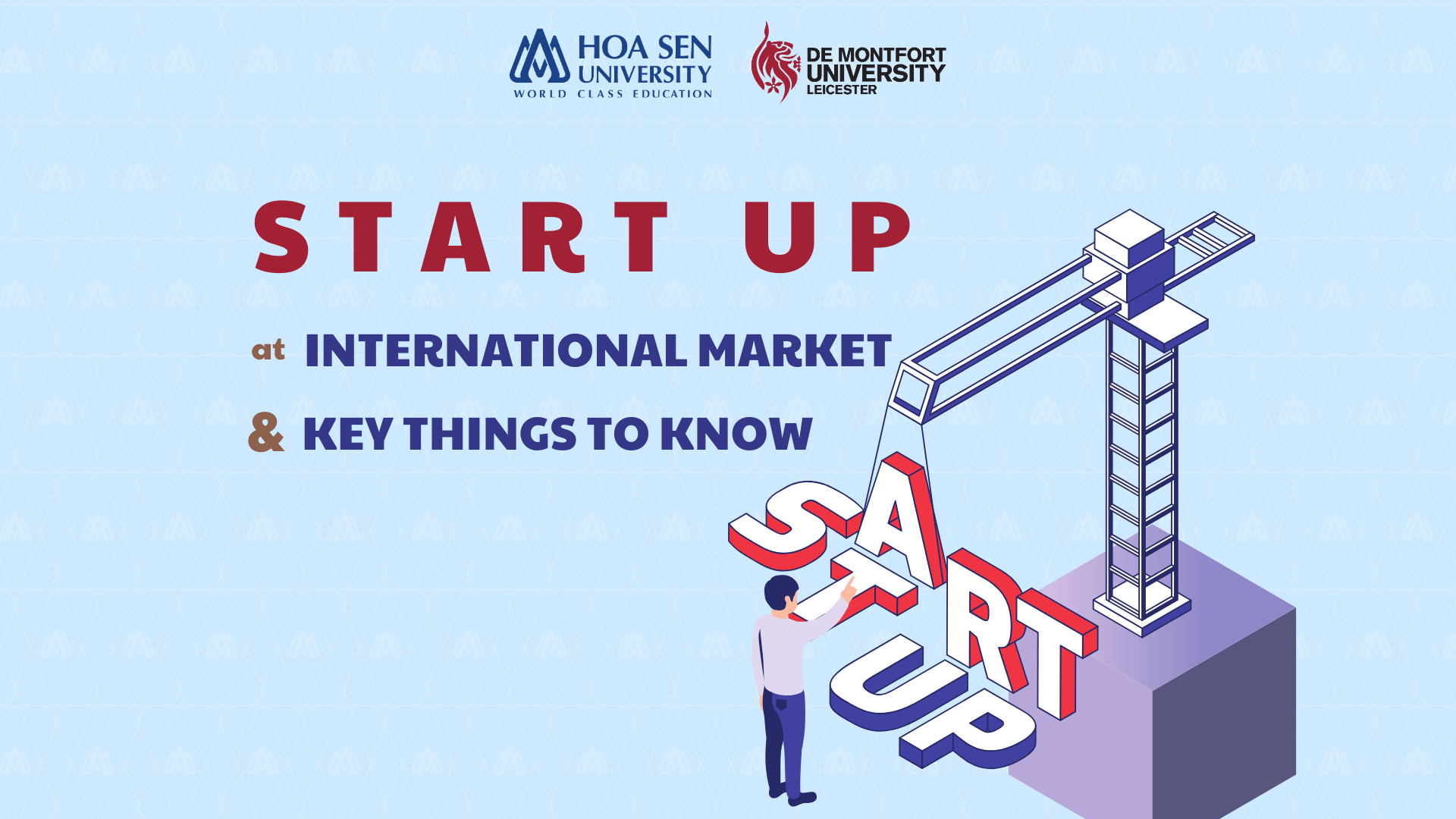Challenges Of The Future International Business Industry
The international business sector is facing significant challenges amidst the deepening of globalization. Grasping opportunities, adapting to international market changes, and dealing with risks have become essential requirements for those pursuing this field. Let’s explore the challenges in international business and how to overcome the difficulties in this industry.

1. Challenges of Doing International Business in Vietnam
In the age of globalization, international business has become an inevitable trend for enterprises to grow. However, for recent graduates, the challenges of this industry are unavoidable.

1.1 Difficulties Related to Free Trade Agreements (FTAs) Between Countries
International business involves engaging in “Free Trade Agreements (FTAs)”—agreements between two or more countries. Many businesses have yet to fully grasp information regarding these agreements, resulting in ineffective business strategies that fail to optimize the benefits that FTAs bring.
Lack of necessary knowledge about FTAs leaves many businesses unprepared for international integration. According to a 2015 survey by VCCI, 60-70% of enterprises claimed that these agreements had little or no impact on their business activities.
1.2 Management Challenges
International business is a vast field, yet management in many companies does not meet high standards. This is evident in how businesses operate, with managerial quality falling short of expectations.
1.3 Limited Resources
A major challenge in international business is resources. Vietnamese enterprises have yet to fully capitalize on investment, human resources, information technology, and the application of scientific techniques.
Due to inefficient management, productivity and competitiveness are reduced in many businesses. This highlights the underdeveloped resource capacity of Vietnamese enterprises, which remains a significant concern.
1.4 Lack of Long-Term Strategic Vision
Many businesses lack a long-term vision and sustainable development strategy. This limits their ability to exploit competitive advantages in the long term, making it difficult to attract international partnerships. This situation is particularly common in Vietnam, adding to the challenges faced in international business.
2. International Business Challenges Abroad
The development of international business coincides with global connectivity. This raises the question for many students: which university should they attend to face these challenges? So, what are the specific difficulties in international business?
2.1 Economic Environment
The economic environment can be divided into developed, developing, and underdeveloped countries. These differences are one of the primary factors creating challenges for international business, as the heterogeneity of economies leads to various issues in cooperation and investment.
2.2 Political Environment
The political environment is one of the most complex and sensitive factors in international business. Companies must always adapt to different policies and regulations in each country. This requires flexibility in business planning and investment strategies when operating in international markets.
2.3 Cultural Environment
Culture is an indispensable factor, and it is also one of the top challenges in international business. Cultural differences, including language, religion, and social values, create major barriers to communication and mutual understanding between business partners. This is a key reason why businesses need to be well-prepared when entering foreign markets.

3. Solutions for Successful Integration in International Business
To overcome the challenges in international business, companies must implement several key solutions to ensure successful integration.
3.1 Integrating Market and Development Strategies
During integration, companies must continuously review and adjust their business strategies while building a sustainable corporate culture. The integration phase brings both opportunities and difficulties for international business, requiring companies to enhance their competitiveness through internal strength or cooperation via alliances and joint ventures with other partners.
3.2 Adopting Advanced Technology
Technology is a crucial element in the 4.0 era. Companies need to focus on research, product innovation, brand development, and quality enhancement while studying competitors to provide effective competitive solutions. The adoption of technology not only boosts business efficiency but also expands the market for products.
3.3 Adhering to International Quality Standards
For sustainable development, products and services must strictly comply with international standards. Establishing a quality management system like ISO 9000, ISO 14000, OHSAS 18000, and HACCP/ISO 22000 is critical to ensuring product quality, service, and competitiveness.
3.4 Developing Human Resources
Human resources play a vital role in business development. Therefore, companies need strategies for training and nurturing talents while taking care of employee welfare and well-being. Investing in people is one of the most effective solutions to overcome the challenges in international business.
3.5 Expanding Partnerships and Cooperation
In the context of integration, joint ventures and partnerships with strategic partners are key to long-term development. Expanding connections allows businesses to access new markets, exploit potential, and build strong partnerships, thereby enhancing their competitive position in the international market.
4. Where to Study International Business?
The Hoa Sen – De Montfort Program offers a Bachelor’s degree in International Business, equipping students with comprehensive knowledge of global markets and management skills, preparing them to seize opportunities and face challenges in international business. With an internationally accredited curriculum and guidance from industry-leading instructors, students will gain practical experience through projects and case studies, opening doors to multinational companies. If you’re wondering which university to choose for international business, consider the Hoa Sen – De Montfort program to build a solid foundation for your career.
5. Conclusion
International business faces numerous challenges, from the economic, political, and cultural environment to management and resource development. To overcome these difficulties, companies need to integrate strategies, adopt technology, adhere to international standards, and develop human resources. At the same time, students need to choose a suitable learning environment where theory and practice are closely linked to prepare well for the future. Understanding and careful preparation is the key to success in this field.If you’re interested in the International Business Bachelor’s program, follow our page to stay updated on the Hoa Sen – De Montfort International Program! To receive more information about the program, please register here.
Read more:
- Opportunities and Challenges of Studying International Bachelor’s in International Choosing to Study International Business – Not New But Always HOT
- What is International Business? How Does It Differ from International Economics?
——————————-
CONSULTATION CONTACT: Hoa Sen – De Montfort Program (Institute of International Education)
Apply online here
Register for consultation here
📍 Address: Room 1007, 10th floor, 08 Nguyen Van Trang, Ben Thanh Ward, District 1, Ho Chi Minh City Phone: 028 7309 1991 (Ext: 4792)
Hotline: 0888 275 276
Email: demontfort@hoasen.edu.vn
Website: www.hoasen.edu.vn/demontfort/












